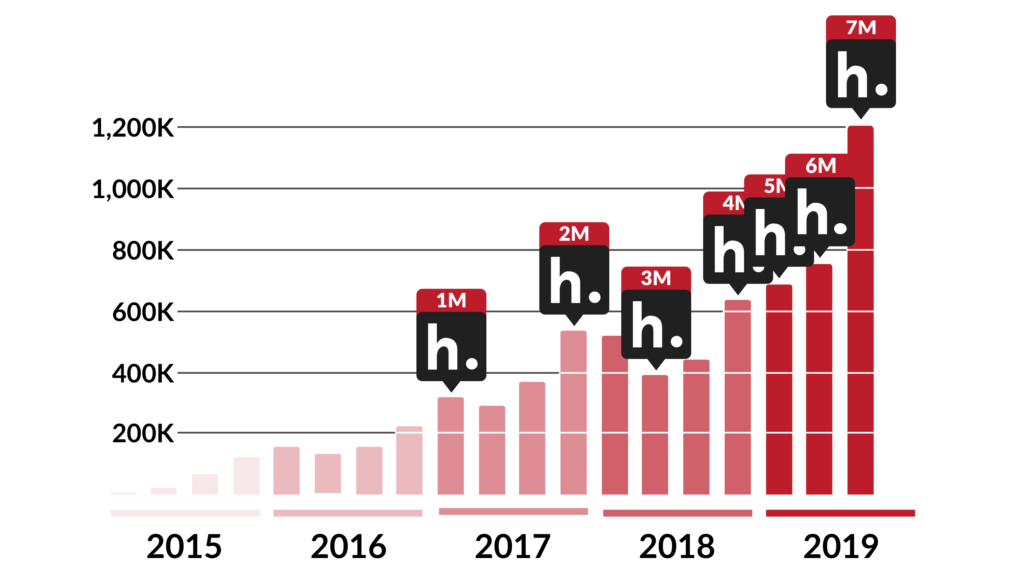Hypothesis: 7 Million Annotations and Counting
 This week we’re celebrating another major milestone: Our 270,000+ registered Hypothesis users have now created over 7 million total annotations. Teachers and students are still leading this annotation activity — many now using our latest LMS integration and participating in supported pilots — but journalists, publishers, and researchers also continue to spread collaborative annotation as a basic practice on the web.
This week we’re celebrating another major milestone: Our 270,000+ registered Hypothesis users have now created over 7 million total annotations. Teachers and students are still leading this annotation activity — many now using our latest LMS integration and participating in supported pilots — but journalists, publishers, and researchers also continue to spread collaborative annotation as a basic practice on the web.
We’re recording more than 1M annotations each quarter and seeing usage accelerate significantly. With the start of a new academic term this fall, we’re seeing more than 200% usage over the same time last year, with annotations roughly doubling every year: 1M in 2016, 2M in 2017, 4M in 2018, and 8M or more in 2019. We expect this exponential growth to continue and even increase as more organizations integrate Hypothesis into their systems and practices.

Hypothesis in education
The biggest part of our growth has been ongoing, widespread annotation by teachers and students, now accelerated even more by our deeper integration with the learning management systems (LMS) that most schools in higher education — and increasingly in K12 — use to deliver reading assignments. Since we introduced our LMS app last December, over 300 schools have integrated Hypothesis with their LMS and many schools have started formal pilots, including CSU Channel Islands, Dartmouth College, Davidson College, Finger Lakes Community College, George Mason University, Indiana University, Metropolitan State University of Denver, Rocky Mountain University of Health Professionals, University of Michigan, University of New Haven, and University of Virginia.
Start a supported pilot with Hypothesis at your school.
In addition to providing single sign-on and automatic private groups for class rosters, the Hypothesis LMS app now also enables educators to assess student annotations quickly and easily using grading capabilities like Canvas SpeedGrader and soon in other LMSs. Now you can view and grade a single student’s annotations in place on top of a reading assignment or in the context of annotations by other students. This new functionality makes it even easier for teachers to use annotation to connect student reading to learning.
Add the Hypothesis LMS app to Blackboard Learn, Instructure Canvas, Desire2Learn Brightspace, Moodle, Sakai, or Schoology today.
As collaborative web annotation becomes more widely used, educators are starting to report benefits for student learning. Early research from Simon Fraser University suggests that most students find social annotation with Hypothesis helps them learn.

Extending and deepening research into the impact of annotation in teaching and learning is one of the goals of AnnotatED, the new community we started that includes participants from institutions using Hypothesis formally. The AnnotatED community also hosts events open to everyone interested in annotation in education, both virtual, and face-to-face in conjunction with other gatherings, like OERizona on 29 Oct, the day before the OpenEd19 conference in Phoenix.
Hear why educators are so inspired to annotate with students in this short video of highlights from educators presenting at I Annotate 2019, or explore videos from all the #ianno19 sessions about annotation in education, journalism, publishing, research, and technology, including Gardner Campbell’s inspiring keynote: The Simple Secret of the Note in Us All.